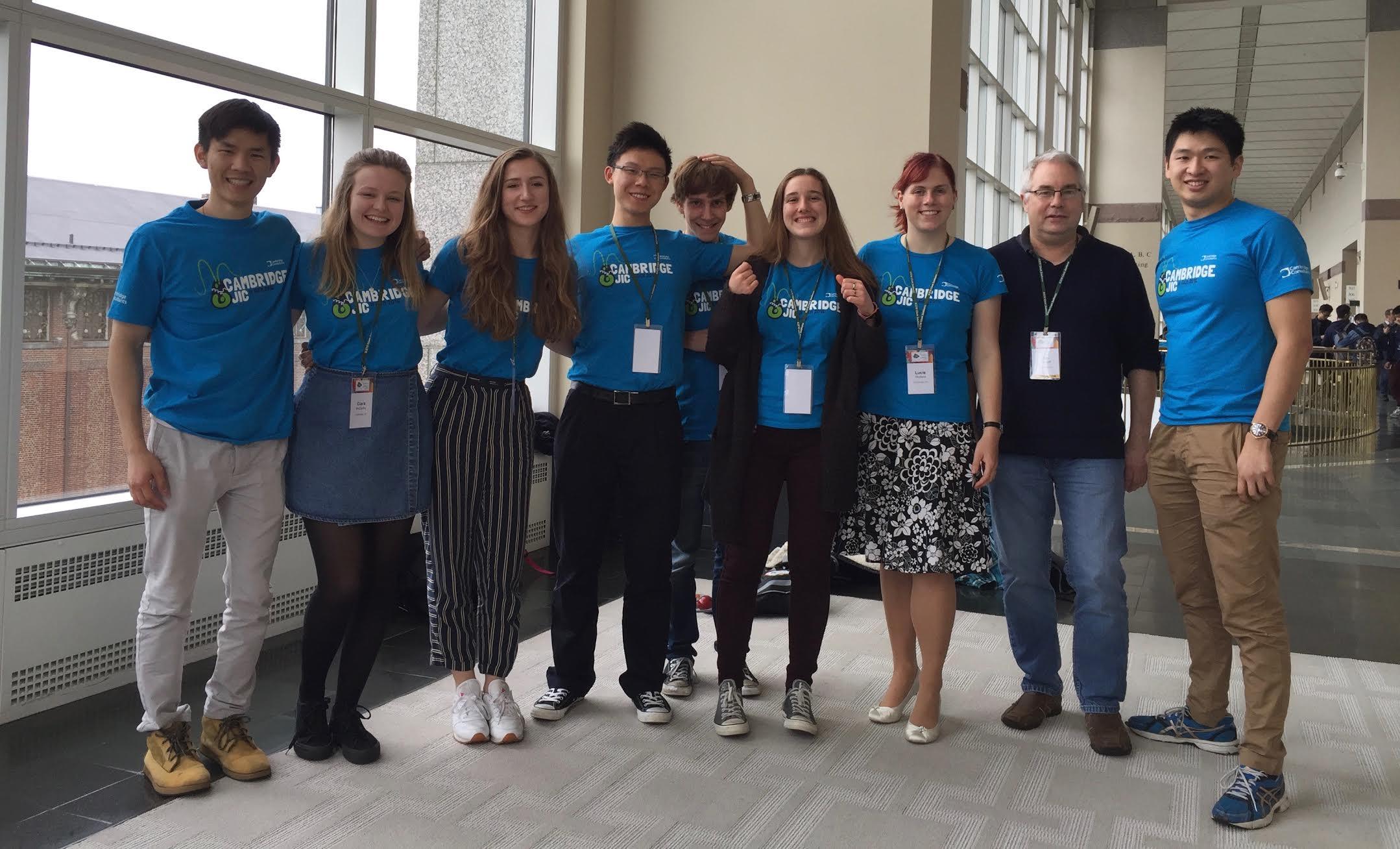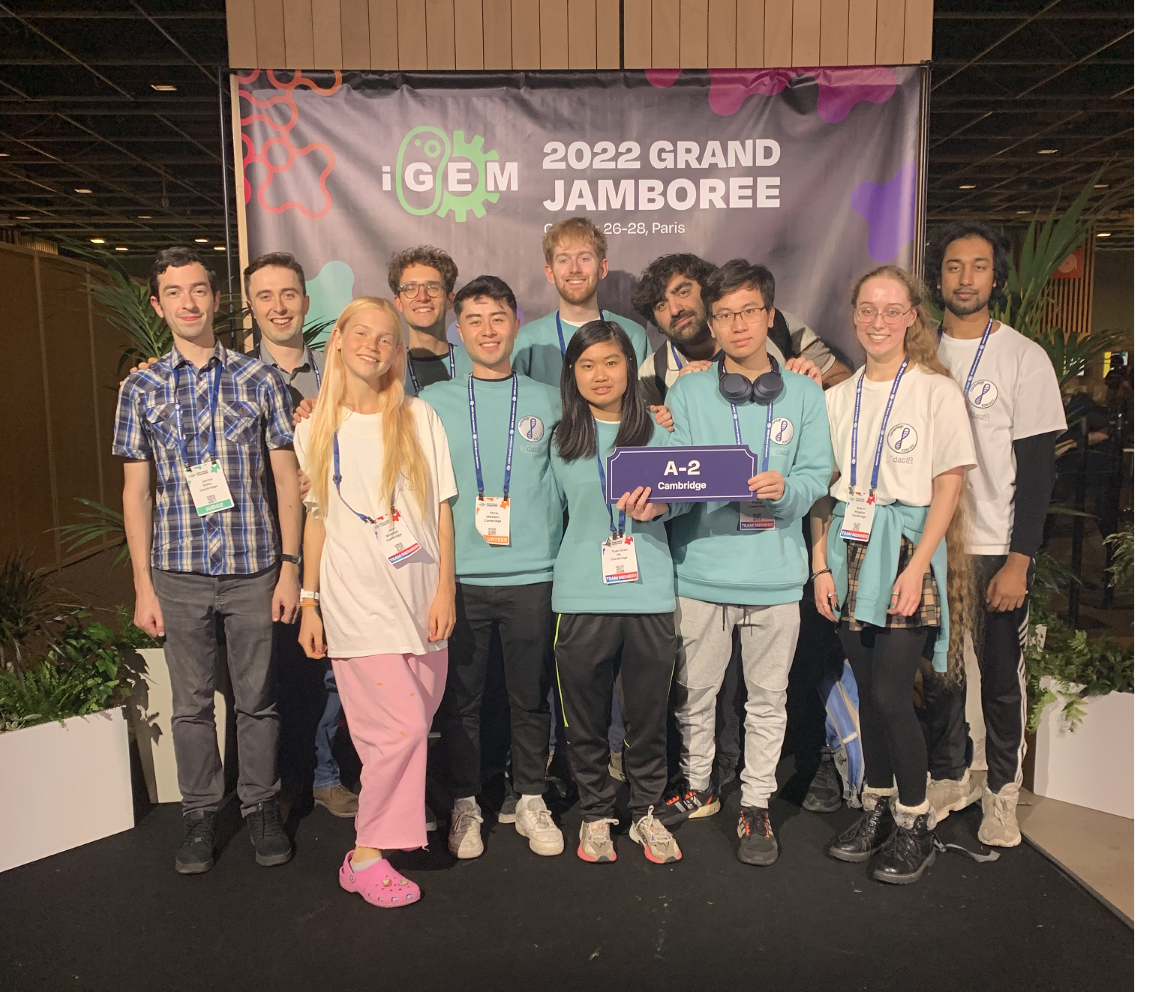The Cambridge iGEM team won a Gold Medal and received a nomination for the ‘Best Hardware’ special prize in the Undergrad Category at the 2024 iGEM Grand Jamboree. Their project ‘MaGenTa’ worked on developing tools for magnetogenetics, an approach using magnetic fields to remotely and precisely control gene activation.
What is iGEM?
iGEM stands for International Genetically Engineered Machine and is the world’s largest synthetic biology competition and community. The competition involves teams of students spending the summer within the lab tackling an important problem that can be solved with synthetic biology. The process is similar to founding and building a biotech start-up, including coming up with an idea, and implementing it in the lab. It requires working on many varied aspects of a project, including computational modelling, communicating with interested stakeholders, education, fundraising and even presenting findings at an international conference!
Cambridge has a long history with iGEM. Cambridge was the first UK team to compete, in 2005, and even won the iGEM Grand Prize in 2009, but had not entered a team since 2016. In 2022, led by the Cambridge University Synthetic Biology Society, the Cambridge iGEM team made a long-awaited return with their project, “AdaptR”.
2022 Cambridge iGEM Team
What is AdaptR?
Synthetic biology is incredible and allows us to engineer biology with novel abilities and use it in many different applications. However, synthetic genetic circuits are fragile and often fail, especially when scaled to industry. AdaptR aims to fix this proverbial crack in the pillar of synthetic biology by improving robustness of synthetic genetic circuits. To achieve this, we apply engineering principles of control theory to synthetic biology to create an integral controller, which acts to hold the production of a protein at a reference level in response to perturbation, minimising steady state error.
AdaptR has numerous potential use cases, ranging from microbial drug delivery and biomanufacturing to metabolic engineering. To make our circuit as usable as possible, we made use of a one-step modular implementation to replace the gene of interest depending on the user. We also took a factorial approach to building our circuit, expedited by the use of a modular DNA assembly technique (JUMP Golden Gate Assembly). This was guided by extensive modelling, which allowed us to explore how varying the strengths of promoters and ribosome binding sites would affect our circuits and, thus, informed the most efficient path to building usable circuits. To read more about our project, please visit: https://2022.igem.wiki/cambridge/index.html
Getting involved
To know more about iGEM at Cambridge or to get involved with future Cambridge iGEM teams, please get in touch with the Cambridge University Synthetic Biology Society, who will be hosting information, brainstorming and team-selection sessions during Lent Term 2023. To connect with them and to view the current assignment set for those interested in joining the 2023 Cambridge iGEM team, please visit: https://linktr.ee/cusynbiosoc
2016 Cambridge-JIC Team

The 2016 Cambridge-JIC team took home a Gold Medal and Best Plant Synthetic Biology Prize in the Overgrad Category at the 2016 iGEM Giant Jamboree. Their project 'InstaCHLAM' created tools for easier engineering of algal chloroplasts.
Previous Projects
Full details of projects from previous years can be found here:
iGEM2015 - Low cost 3D printed automated microscope
iGEM2014 - Marchantia for synthetic biosensor plants
iGEM2012 - New standards for biosensor development
iGEM2011 - Reflectins for creating iridescent biological systems
iGEM2010 - E. glowli, new bioluminescent systems
iGEM2009 - E. chromi, multispectral biopigments for biosensors
iGEM2008 - iBrain, electrical signalling and communication
iGEM2007 - Bacteria Online, microbial patterning
iGEM2006 - Self-organisation in bacteria populations
iGEM2005 - Artificial chemotaxis
Latest updates from Cambridge iGEM
Please note: this opportunity is now closed.
Represent Cambridge University at the International Genetically Engineered Machine (iGEM) competition....
The 2022 Cambridge iGEM team won a Gold Medal and received a nomination for the ‘Best New Basic Part’ special prize in the Undergrad Category at the 2022 iGEM Grand Jamboree. Their project ‘AdaptR’ worked on developing a synthetic biological integral...
The Cambridge-JIC iGEM Team won a Gold Medal and Plant Synthetic Biology Prize for their project on open source synthetic biology tools for chloroplast engineering in algae. Team member Ciara McCarthy takes us through how they did it!
The Cambridge-JIC iGEM Team 2016 explored open source synthetic biology tools for chloroplast engineering in algae.
Geraint Parry of GARNet runs through the plant synthetic biology projects showcased at the iGEM 2016 Giant Jamboree, including the Cambridge-JIC team and their work on chloroplast engineering in Chlamydomonas rheinhardtii.
A team of Cambridge students have been awarded a Gold Medal and Best Plant Synthetic Biology Prize for their entry into the International Genetically Engineered Machine (iGEM) Competition 2016.
The Cambridge-JIC iGEM Team are exploring open source synthetic biology tools for chloroplast engineering in algae.
The Cambridge-JIC iGEM Team consists of ten undergraduates from Engineering and Natural Sciences working for 10 weeks this summer to engineer future synthetic biology tools and applications. Cambridge Consultants are one of the group of supporters helping them to deliver.



